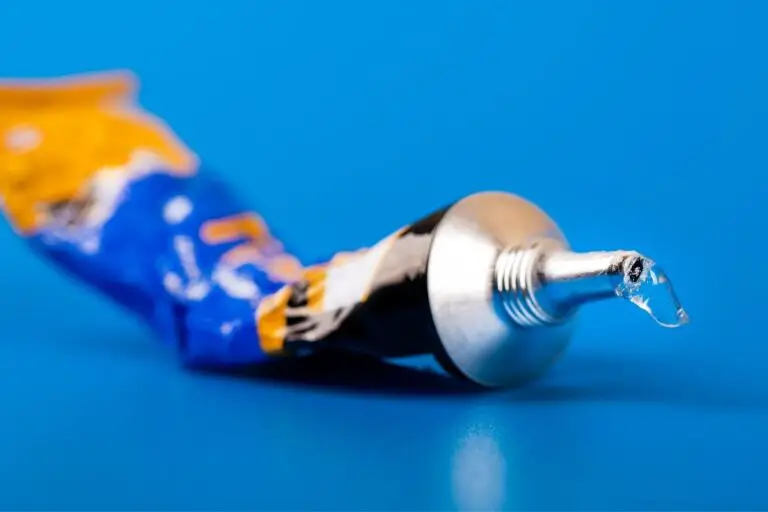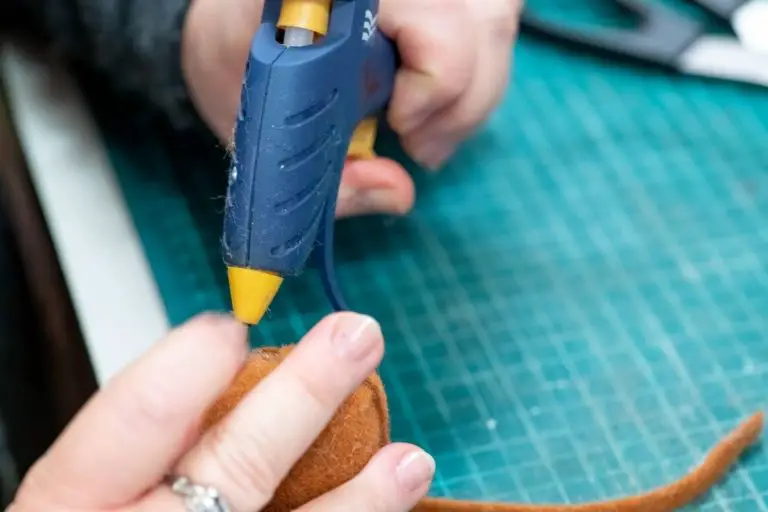Can CPVC Be Used on PVC? A Guide + The Adhesives You Can Use on PVC
Pipes made from polyvinyl chloride are referred to as PVC and they are used for various applications including plumbing systems and some DIY projects which often require the use of a strong adhesive to hold the materials together.
There are various kinds of adhesives that work on PVC, however, the most common is solvent cement. It’s important to ask yourself what kind of solvent cement is best for PVC.
So, can CPVC be used on PVC? CPVC solvent cement can be used on PVC, however, it’s not always recommended. When applying an adhesive on PVC pipes, it’s required to use a PVC solvent cement that’s made specifically for PVC so that the two materials can bond easily and achieve maximum strength.
Keep reading to learn more about PVC and the kind of adhesives that can be used on it.
Contents
What Is PVC?

Polyvinyl Chloride (PVC) is a highly versatile thermoplastic polymer that is commonly used in construction, transportation, and even healthcare.
It has high density and good tensile strength which makes it a durable and long-lasting material. It is relatively low cost and has recyclable properties which makes it a popular choice for construction and healthcare applications.
There are two main types of PVC which are flexible PVC and Rigid PVC (uPVC)
- Flexible PVC is softer than uPVC as it contains plasticizers like phthalates. It’s light in weight and has proven to be safe for use to manufacture medical devices such as tubing and blood bags as it can be easily sterilized.
- Rigid PVC or uPVC is chemically more resilient and resistant to wear out and corrosion which is why it’s commonly used for construction applications such as water and waste pipes, gutters, and window frames.
What Kind of Adhesive Can You Use on PVC Pipes?

PVC is used to manufacture piping systems and these pipes often require a strong adhesive to hold the material together.
One of the most common adhesives used for pipes is solvent cement. It might be often referred to as glue but in fact, it’s not exactly a kind of glue at all.
Solvent cement adhesive ensures that the installation process of the pipes is fast and easy as it contains various chemicals that break down the surface of the pipe they are applied to and chemically fuse them together at a molecular level, essentially creating one continuous piece of plastic.
There are different kinds of cement on the market such as PVC cement or CPVC cement. So, it’s important to choose the kind of cement that works best with the kind of pipe you have.
Does CPVC Solvent Cement Work for a PVC Pipe?
/ima
Chlorinated polyvinyl chloride (CPVC) solvent cement can work for a PVC pipe, however, it’s not always recommended to use it as it might cause some damage to the surface.
It’s best to use a PVC solvent cement for a PVC pipe so that the two materials can easily bond and achieve maximum strength while a CPVC solvent cement would be more ideal for a CPVC pipe.
What Kind of Glue Can You Use for PVC?
If you’re working with other PVC plastic surfaces, then it’s best to use super glue and epoxy glue.
Super glue is also known as crazy glue. It’s made from a base chemical component called cyanoacrylate which requires the presence of moisture on the surface to react and bond quickly. You can learn more about superglue in this post on how you can use superglue on electronics.
Epoxy glue, on the other hand, is made from two compounds which are the resin and the hardener. These two compounds typically come in separate containers and need to be mixed before application in order to bond effectively.
Super glue is ideal for Flexible PVC surfaces as it will ensure that the adhesive bond will hold up while the flexibility is maintained while Epoxy glue would be more suitable for Rigid PVC.
Related Questions
Do You Need to Prime Pipes Before Applying Solvent Cement?
You do need to prime pipes before applying solvent cement as this will prepare the surface of the pipe to bond and ensure you achieve maximum strength. However, not all kinds of pipes require a primer. PVC and CPVC pipes always need to be primed while ABS pipes don’t always need to.
How Long Does It Take for CPVC to Dry?
It can take CPVC about 30 minutes to start setting and drying after applying it to the surface. However, it can take between 12 and 24 hours for it to fully cure. It mainly depends on the amount of adhesive used as well as the temperature and air circulation in the room.
Helpful Resources
What is the best adhesive for bonding PVC Plastic?
If you like this article, share it!
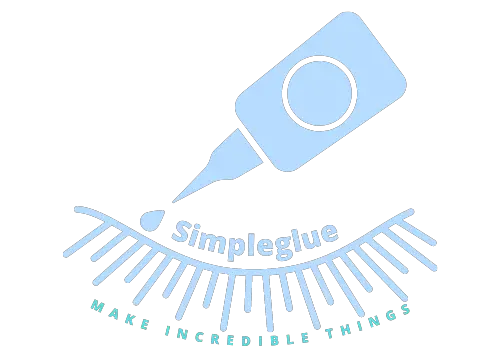
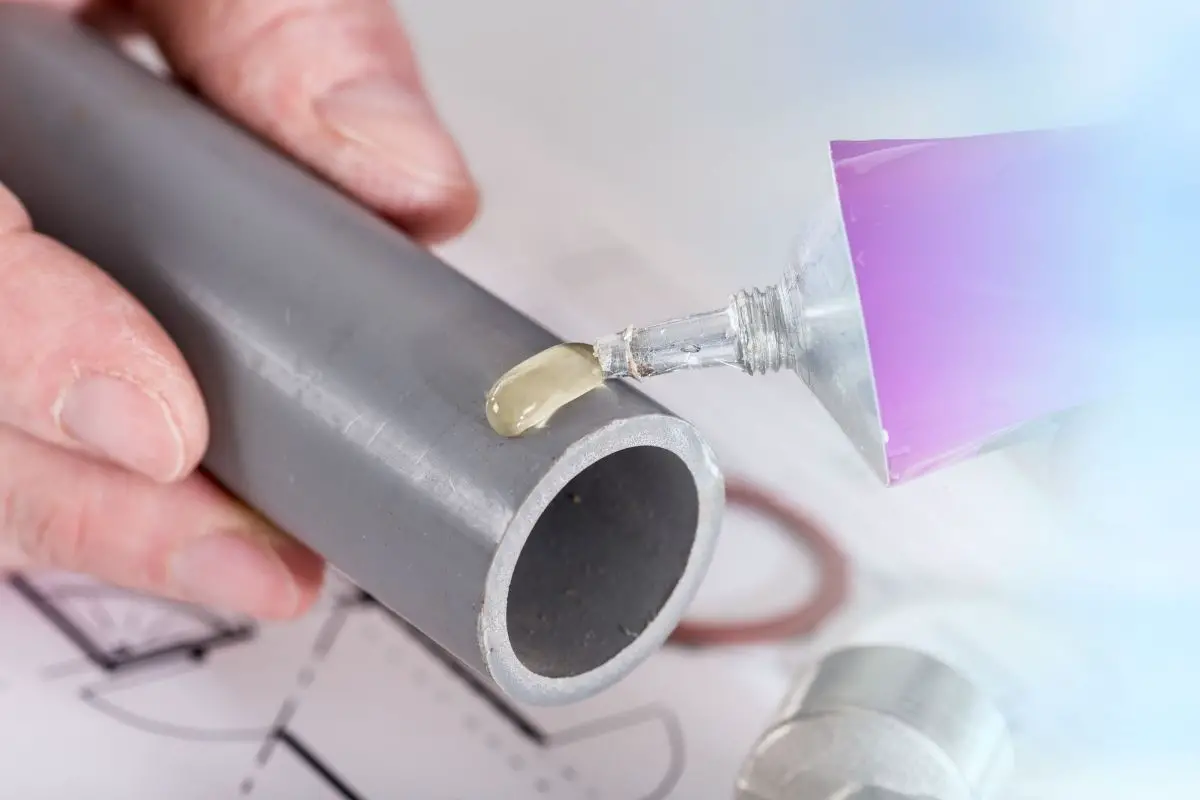
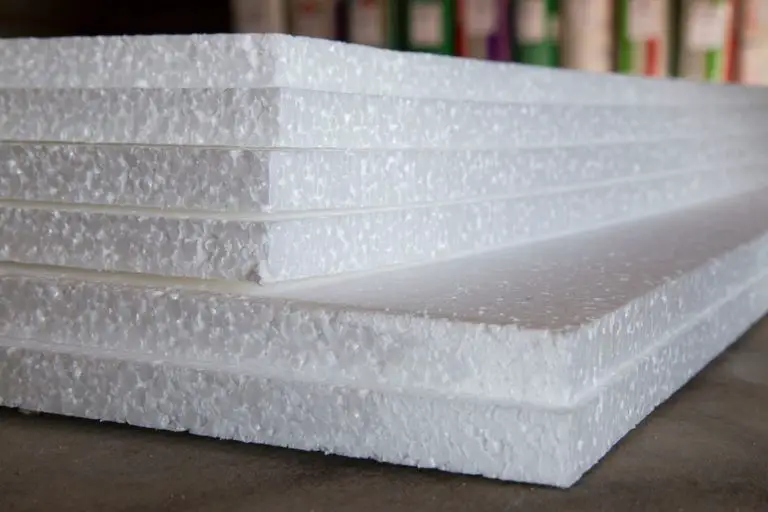
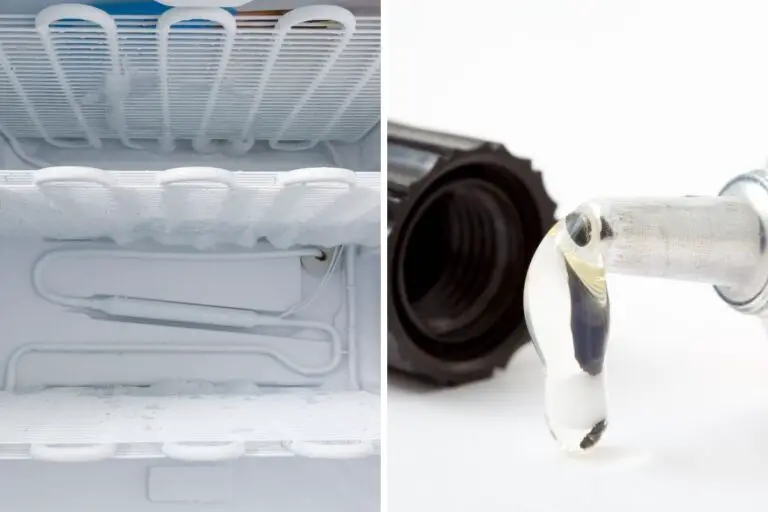
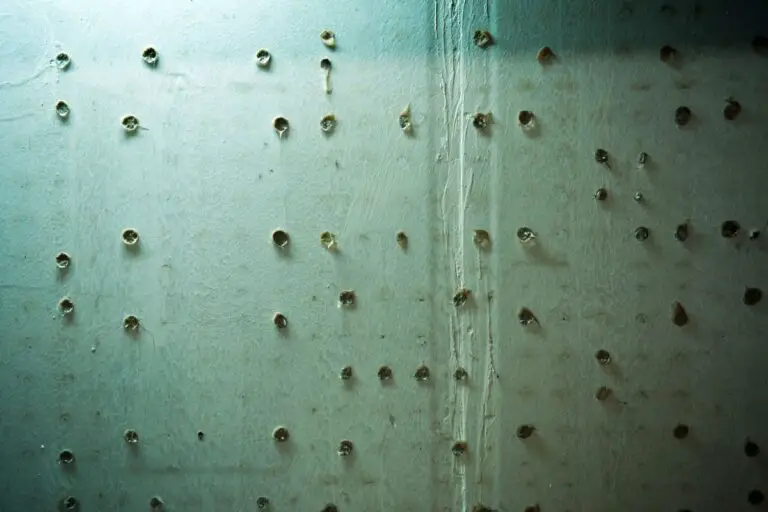
![Can You Use Expired Glue? [Shelf Life of All Glues Explained Simply]](https://simpleglue.com/wp-content/uploads/2022/01/expired-glue-768x512.jpeg)
